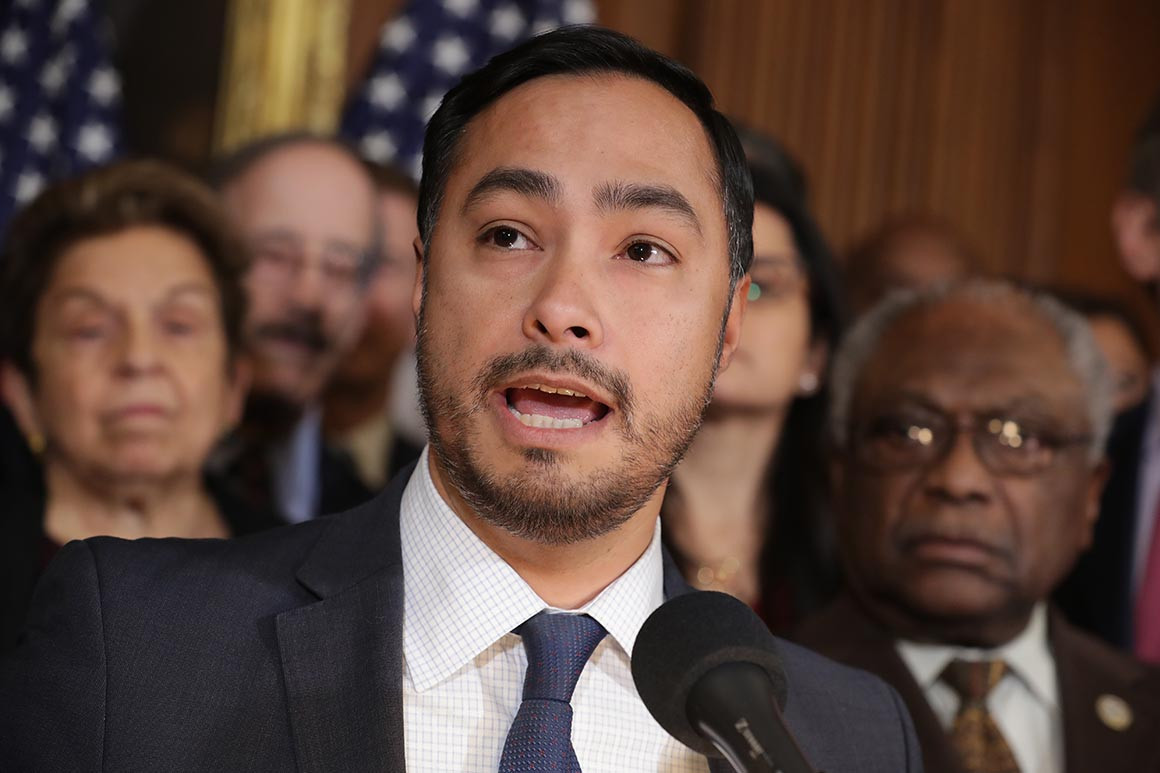
Inside the fight to prioritize vaccinating agricultural workers in Texas and California
“It’s imperative for our food supply and more equitable for low-income mostly Latino workers who feed us,” Rep. Castro wrote.
A year ago, the federal government designated agricultural workers as “essential,” a status that would enable them to continue working despite stay at home orders, while also marking them as higher risk of contracting coronavirus.
In states with large agricultural worker populations like Texas and California, the decision sparked what has now become a year-long effort to improve working conditions for these farmworkers, who, through the most difficult year in modern history, continued to cultivate food for the nation.
But the efforts are still receiving pushback.
On March 11, Congressman Joaquin Castro (D-TX), along with Texas Representatives Filemon Vela, Veronica Escobar, Marc Veasey, Vicente Gonzalez, Al Green, and Sylvia Garcia, sent a letter to Gov. Greg Abbot, urging him to expand vaccine eligibility to farmworkers, meatpackers, and other agricultural workers.
Texas stands out as being only one of a handful of states excluding these workers from tier 1B of vaccine eligibility.
“Now, with Governor Abbott’s reckless decision to lift mask-mandates and end public health guidance in effect, it is more crucial than ever that we ensure the essential agricultural workers who have no choice but to go to work receive the protection they need to keep Texas and America fed,” wrote Rep. Castro.
He added that in turn, expanding vaccine eligibility to agricultural workers would help address the continued disparities in both vaccine rollout and COVID-19 infections among Texas’ Latino and low-income communities that, like the rest of the nation, have been the hardest hit in Texas.
.@GovAbbott should open up vaccine eligibility to farmworkers, meatpackers, and essential ag workers—following the vast majority of states and @CDCgov.
— Joaquin Castro (@JoaquinCastrotx) March 11, 2021
It’s imperative for our food supply and more equitable for low-income mostly Latino workers who feed us. https://t.co/J374ZeEgDi
In California, the situation is just as dire, but workers have policy on their side.
With more than half a million farmworkers, counties have only recently begun offering vaccinations to its hardest-hit workforce, and reports show workers are so far accepting the vaccine at high rates.
RELATED CONTENT
This was thanks to relentless advocacy similar to the reps in Texas.
Since Early February, Rep. Jimmy Panetta (D-CA) has been leading fellow congressional members in advocating Governor Gavin Newsom to ensure outreach to farmworkers as part of the state's distribution plan.
His letter pushed for a “robust” educational campaign, including linguistically accessible and culturally appropriate resources to ensure farm workers felt secure in seeking out and accepting the vaccine.
“As many farmworkers follow the harvest and flow back into our agriculture communities, the State of California must take into account the increased numbers to ensure proper vaccine distribution,” Panetta wrote. He was also joined by fellow California representatives Jim Costa, Josh Harder, Salud Carbajal and Lou Correa.
On Feb. 17, Gov. Gavin Newsom announced that California would make 34,000 vaccines available to farmworkers in the Central Valley, the state’s agricultural center.
“We need to replicate this program all up and down the state of California,” Newsom said at the time.
But despite early numbers indicating farmworkers are eager to get vaccinated, workplace vaccination events are still few and far between in California, as clinics are sometimes only open to workers of certain companies, and they are reliant on how many doses a county sets aside for them, reports CalMatters.
About 46,000 agricultural workers in California have been infected with COVID-19, much higher than the general population, which is 13% to 5%, according to a UC Berkeley study published in December.











LEAVE A COMMENT:
Join the discussion! Leave a comment.